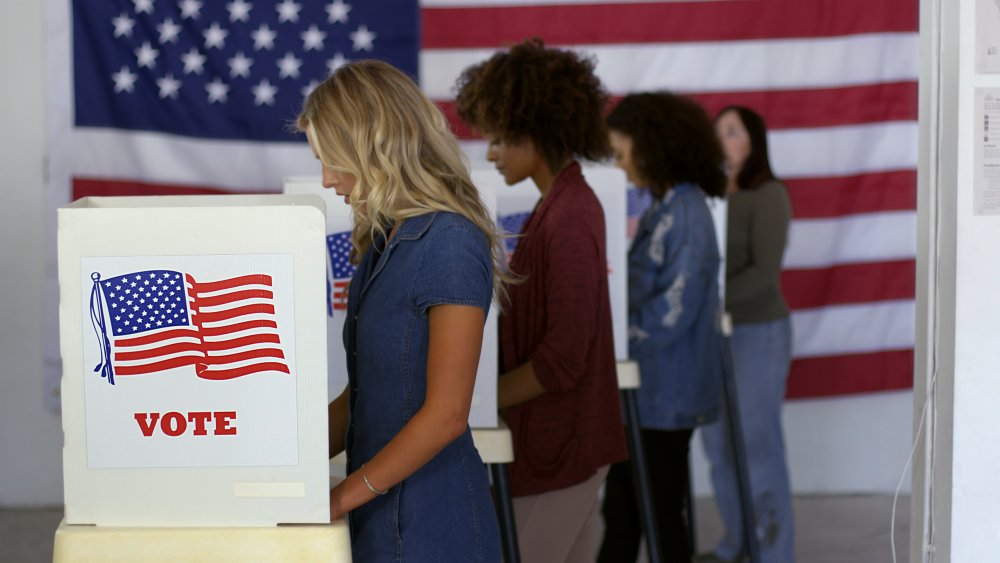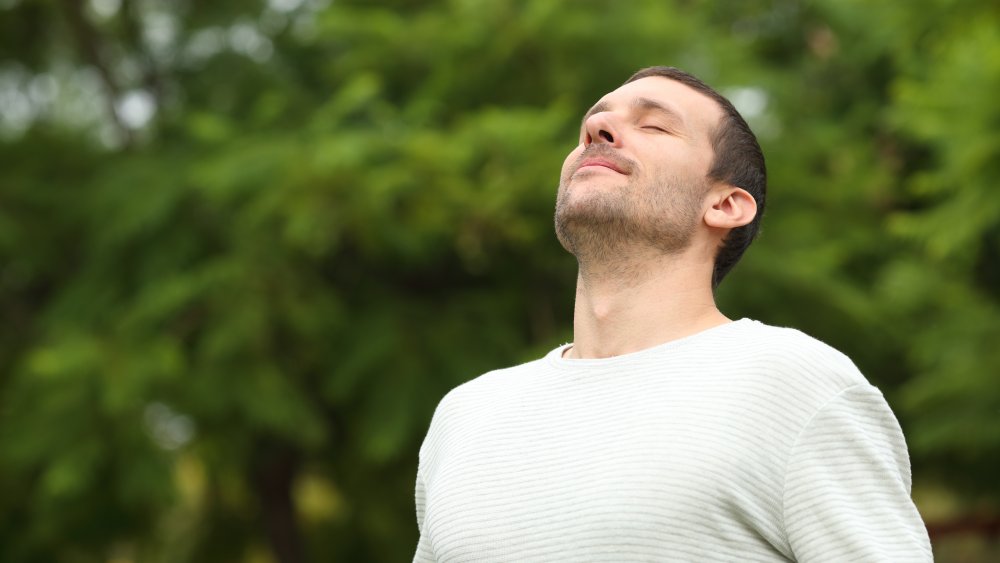The Surprising Connection Between Elections And Heart Attacks
Election years are never fun. Every time you turn on the TV, there's one side or the other trying to convince you that the other candidate is some kind of ax-wielding maniac and that the end times are truly at hand should they be elected. And don't even get us started on that constant stream of robocalls and spam texts urging us to "get out the vote" for their candidate. It's enough to give you agita, as Tony Soprano would say. Yes, we all know it's our civic duty to vote, it's the only way we stand even a tiny chance of changing anything about the system that we don't like, but do they have to make it such a painful, distasteful process starting months before the polls even open?
Well, you might not be too thrilled to hear it, but if you've come to dread election season, medical science has found some hard facts to back up your fears. It seems that the more stressed out the election is making you feel, the more danger you're in of suffering dangerous health consequences.
The last election sent stress rates soaring... and this one could be even worse
A new study published by the National Academy of Sciences shows some pretty grim results from the last time we went through this whole election ordeal four years ago. In the two days following the 2016 presidential election, hospitalization rates for acute cardiovascular events, including heart attacks and strokes, were up — a 1.62 percent increase over the same two days of the week before the election took place. Study author David Williams, Ph.D., a professor at Harvard's T.H. Chan School of Public Health, called the results "a wake-up call for every health professional that we need to pay greater attention to the ways in which stress linked to political campaigns, rhetoric, and election outcomes can directly harm health" (via Healthline).
The American Psychological Association is also on board with these results, and they add that this year's election is likely to prove even more stressful for many. They've been collecting data on election-related stress since 2016 (the year when it became painfully apparent that there was such a thing), and according to the Stress in America 2020 survey, 62 percent of Republicans and 77 percent of Democrats polled find the current political climate to be a significant source of unease. And of course, this comes on top of a couple of other issues like, say, a worldwide pandemic.
What can we do to keep from stressing over the election?
Lynn Bufka, Ph.D., who serves as the APA's associate executive director for practice research and policy, spoke with Healthline about the upcoming election, advising that we should mentally prepare for the possibility of not having immediate results on election night. As Bufka says, "If you're expecting an answer and you don't get it, that can increase stress," but it's something we'll just have to deal with. She also advises not to cast the election results as a make-it-or-break-it event. Instead, she says to tell yourself that no matter what happens, you're going to "continue to work toward the values you support," since your own actions are something you can control, so reaffirming this "can lower the intensity of [y]our response and be better for [y]our overall physiological health."
Jolene Caufield, a healthcare advisor at Maryland nonprofit Healthy Howard, recommends stepping down your engagement if you feel your stress mounting. She says, "Taking a break from spending time in social media can greatly help manage election stress disorder," and suggests taking up a new hobby or spending more time outdoors to improve your mood. No matter what happens, you won't be much good to your friends, your family, or the causes you hold near and dear if you let yourself become a mental and physical wreck. Take care of your health, stay strong, and remember that together, we're strong enough to make it through any crisis.



